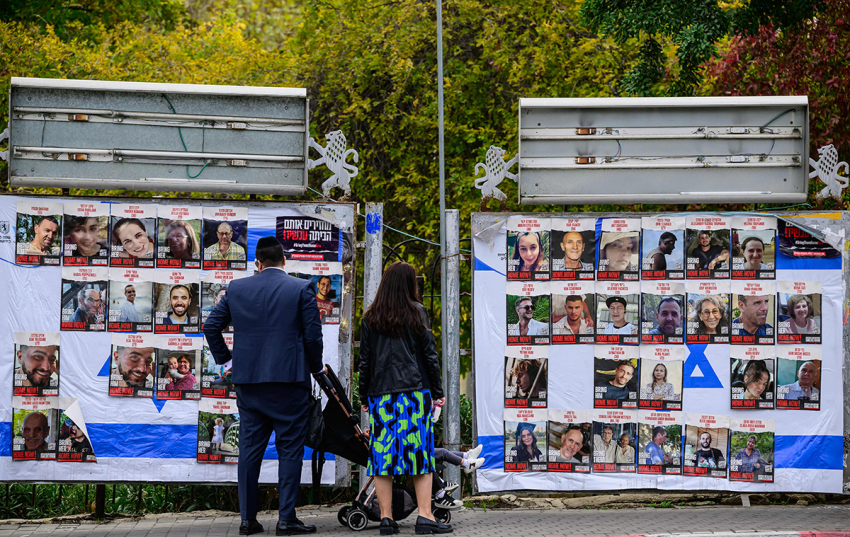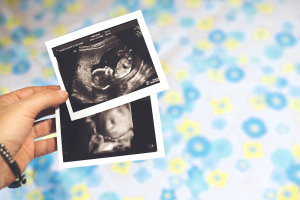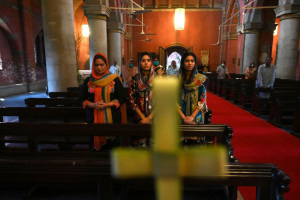Released hostage Mia Schem says she was held captive in Gaza hospital, operated on without painkillers

A hostage ordeal in Gaza has come to light through the harrowing account of Mia Schem, a 21-year-old French-Israeli woman who was taken captive by Hamas on Oct. 7. Schem said she “feared being raped” and underwent surgery without anesthetic or painkillers.
After being abducted from the Supernova festival on Oct. 7, Schem faced a harrowing 54-day ordeal, according to her media interviews.
Schem’s initial days in captivity were spent in a Gaza hospital, where she was tied to a piece of plastic, her hand wounded from a gunshot, The Jerusalem Post said, adding that she underwent surgery in this state without any anesthetic or painkillers. The surgeon’s ominous words to her, “You’re not going to go home alive,” set a grim tone for her captivity, she said.
Following her hospital stay, Schem was moved into a residential house within the Gaza Strip. She found herself in the midst of a family, a setting that confused and frightened her. The presence of children and a woman in the house raised questions in her mind about the nature of her captivity and the people involved.
Schem’s account reveals the psychological and emotional toll of her experience. She said she was kept in a tiny room measuring only two-and-a-half meters. “It was just me and the terrorist. He would stare at me 24/7. There’s a fear of being raped, a fear that he will take the weapon and suddenly shoot me in the head. The room was closed, but occasionally, they threw food at me. The children in the family would look at me and laugh. They look at you as if you’re an animal. You are afraid every second that something will suddenly happen,” she was quoted as saying.
The lack of movement and exposure to daylight affected her physical health, causing her legs to tremble and making it difficult for her to walk.
Throughout her ordeal, Schem compared her situation to that of Gilad Shalit, an Israeli soldier who was held captive by Hamas for over five years.
She said her thoughts often turned to her family and her desire to return home, providing her with the strength to endure her captivity.
Schem’s release coincided with the final day of a week-long ceasefire in late November and marked the end of her harrowing experience.
Schem described a distressing incident where her captor, upon learning of his friends’ deaths in bombings by Israel, became emotionally unstable and armed himself, making her fear for her life. She feigned empathy to manage the situation.
In a separate episode, she was moved to a house with three armed Hamas terrorists. To survive, she catered to them by preparing a meal, which led them to nickname her “Um Sultan.” This strategy was a means of coping with the constant threat of violence or sexual assault.
Upon her release, one captor instructed her to convey a positive image of Gaza’s people.
She said she was willing to be interviewed because she wanted to “show the real situation of the people who live in Gaza. Who they are and what I experienced there. It is important to me that they understand that I went through a Holocaust and that everyone there is a terrorist.”
The Israeli government estimates that 129 people are still being held hostage, with 22 confirmed dead. Among the hostages, five to 10 are believed to be U.S. citizens.
The war was sparked by Hamas’ Oct. 7 attacks in southern Israel that killed over 1,200, mostly civilians. As of Sunday, the death toll from Israeli attacks on Gaza neared 22,000 while more than 56,000 people had been injured, according to the Qatari government-run Al Jazeera based on claims made by Hamas.



























